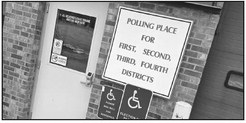Through wars, terrorist attack and epidemics the need for news goes on
Newspapers in the United States have traveled rough seas to the First Amendment freedoms we enjoy today. From the colonial Stamp Act through wartime censorship to today, when thousands of newspapers were slammed with the public health emergency known as COVID-19, people who work for newspapers have never had completely smooth sailing.
Now most of the businesses that advertise with us are shut down. The pipeline to make our payroll shut down with them. People are restlessly waiting in their locked-down homes for us to bring the news nonetheless.
Across the country, journalists and the thousands of people it takes to let them do their work — from publishers to ad sales people to printers — are figuring out ways to keep the news coming. We do our work as bravely as we can, even when we, too, are masked up and dodging possibly lethal infections.
A disheartening chord is sounding here and there across America’s mournful song about this tragic era: why should Americans still support newspapers?
Some in our business don’t like the very notion of “media.” We newspaper folk argue that “media” is not us. We are the “press,” the ones mentioned in the Constitution. Even so, we know some people don’t trust even us, though we work and play and worship and vote in our own communities. Distrust and dissension are making this tough era even tougher.
Let us speak our piece here.
We are not driven by ratings. We cover events and issues and write the news as best we can in the worst of times. We do have to have revenue to pay people, just as the even braver front-line hospitals, ambulance companies and urgent care centers do. We are large and small, owned by local owners or sometimes people from far away. But in most small communities, the newspaper is a hometown thing. We’re here to cover the news, love us or hate us.
Through our national organizations, we’re asking Congress to give us a little support. We need those federal advertising messages to go into the local paper, not onto Facebook or Instagram. We need the short-term payroll loans to pay our staff and cover printing costs for a while.
If these are bailouts or handouts, they are no more so for us than for the millions of other businesses covered by Congress’s $2 trillion stimulus bill. Yes, we are worried about federal debt. But if the economy collapses, the debt will surely spiral out of control.
We need to get through this time and tighten our belts, just as we have through two World Wars, terrorist attacks and other epidemics.
Are we worth the investment? You tell us. Without journalism, how does this bold 244-year experiment in self-government continue to work? We aren’t perfect, nor is democracy. But it is the best we have. — Matthew Adelman, publisher of the Douglas (Wyoming) Budget, is the president of the National Newspaper Association, which represents community newspapers — such as this one — across the U.S.




